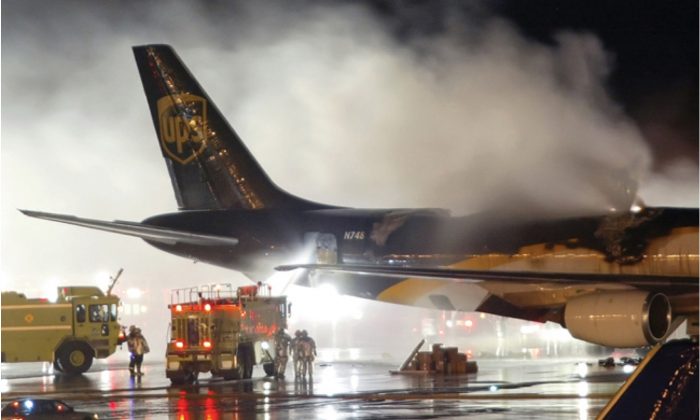
An emergency crew arrives on the scene where a UPS 747-400 Boeing cargo plane caught fire due to lithium-ion batteries in Dubai on Sept. 5, 2010. (Courtesy of Federal Aviation Administration)
China’s Sloppy Battery Industry Threatens Global Gadget Supply ChainAirlines are increasingly wary of taking fire-prone lithium-ion batteries as cargo
The global supply chain for virtually all battery-powered products is grappling with a difficult problem: Lithium-ion batteries, the kind found in just about every rechargeable device these days—from laptops, tablets, and iPhones, to power tools, medical devices, and electric cars—are highly volatile. If a single battery is damaged it can ignite, heating up a neighboring battery causing it to catch fire, creating an uncontrollable chain reaction with catastrophic results.
For obvious reasons, this poses a huge risk, especially when shipped by air. A pilot with a fire in the cargo hold has few options. And the worst has already happened. There have been more than 80 incidents, mostly since 2004, including fatalities, on commercial flights, cargo flights, and in airmail deliveries.
Lithium metal batteries (single-charge batteries found in items like watches and toys) are already banned as cargo on passenger planes, and a growing list of airlines has also banned shipments of lithium-ion batteries on commercial flights, including Delta Air Lines Inc., United Airlines Inc., Qantas Airways Ltd., Air France, Virgin Australia Airlines, Cathay Pacific, and Philippine Airlines. All-cargo airline Cargolux also bans them.
More bans will come if something doesn’t change.
Pilots, airlines, and airplane manufacturers have already stated they would rather see lithium-ion battery shipments suspended until there’s a safer way to deal with them. They said today’s aircraft aren’t equipped to deal with the threat.
The submission explains today’s planes can’t handle the particularly high temperatures of lithium fires and the speed with which the fires can spread, and standard halon fire suppressants are not effective enough against these fires.
At the April meeting, the ICAO decided to convene a special task force to address the issue of whether lithium-ion shipments can be made safe enough for air transportation, particularly on passenger planes. The task force is expected to present its recommendations in October.
If shipments are suspended or banned outright, it would be a logistical disaster not just for companies that make and sell batteries, but for any firm that deals in products that use lithium batteries.
At the April meeting, the ICAO decided to convene a special task force to address the issue of whether lithium-ion shipments can be made safe enough for air transportation, particularly on passenger planes. The task force is expected to present its recommendations in October.
If shipments are suspended or banned outright, it would be a logistical disaster not just for companies that make and sell batteries, but for any firm that deals in products that use lithium batteries.
China’s ‘Willful Noncompliance’
From the battery industry’s perspective, they’re between a rock and hard place. No matter how robust the regulations get—and they certainly favor strict safety rules—the real issue isn’t the rules, but compliance.
Rules around how to package and ship lithium-ion batteries have already become much stricter. New U.S. regulations went into effect last February, and an even stricter international regime will apply as of January 2017. Regulations affect documentation, packaging, and labeling, to the extent that even a single package of two AA batteries has to be labeled as hazardous goods.
But when it comes to compliance, the consistent bad apple that threatens to spoil the bunch is China—the world’s largest producer of lithium batteries.
The danger is when lithium batteries short-circuit—which can happen if they’re poorly made or damaged—they release highly volatile gases.
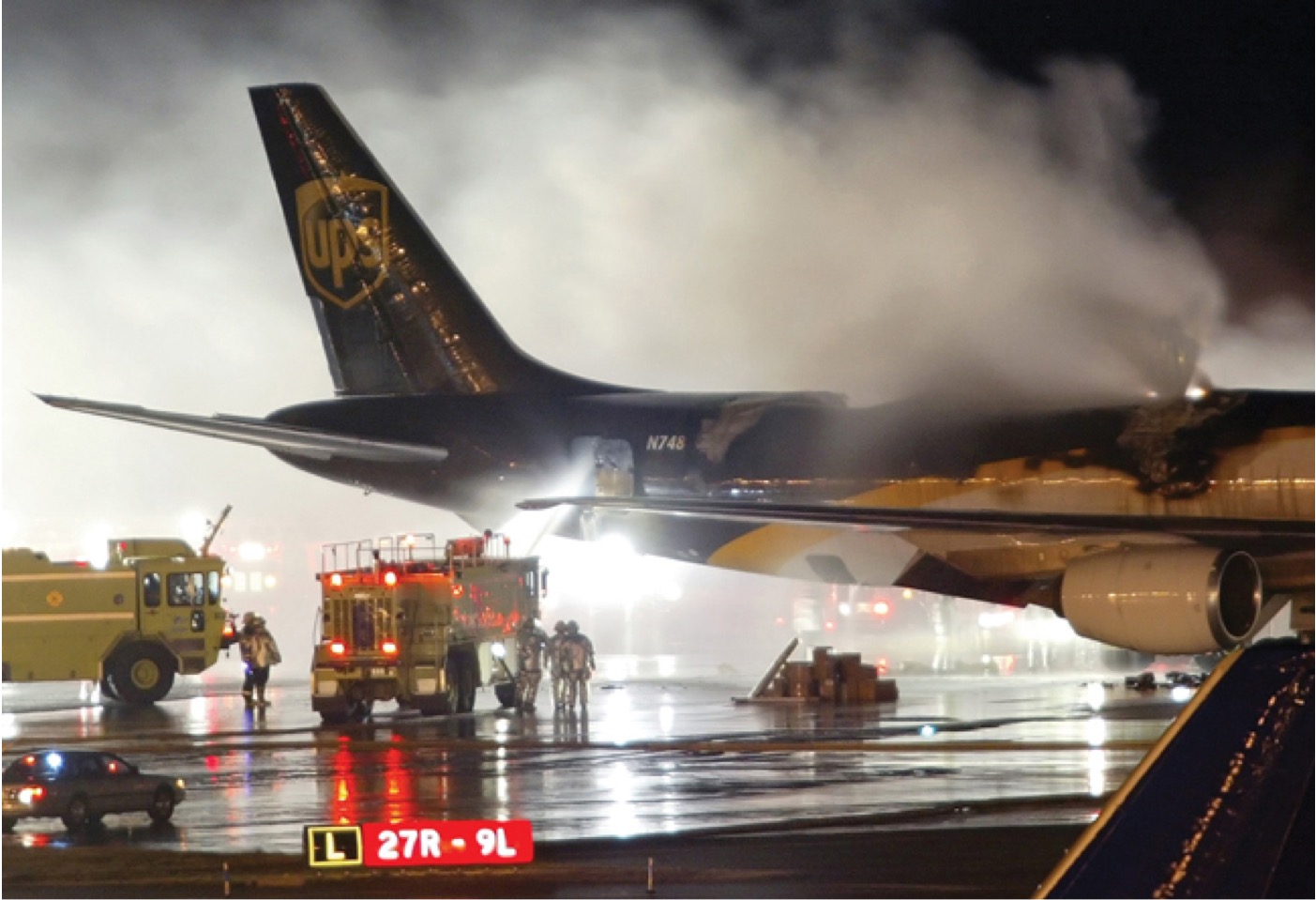
An emergency crew arrives on the scene where a UPS 747-400 Boeing cargo plane caught fire due to lithium-ion batteries in Dubai on Sept. 5, 2010. (Courtesy of National Safety Transport Board)
The result of there being cheaters, is that airlines have become reluctant to accept lithium battery shipments at all, which is wreaking havoc on supply chains for American companies that follow the rules, said Richards.
“We have a problem in one part of the world and now we can’t even move batteries around the United States,” he said.
The airlines recognize this problem too. During a visit to Beijing in April, the director-general of the International Air Transport Association (IATA), Tony Tyler, chastised China on this point:
“Disappointingly, we are seeing some willful noncompliance in the area of lithium batteries—particularly here in China. For example, there is a supplier on Alibaba claiming they will relabel 300 Watt-hour batteries as 100 Watt-hour, and even ship them via the standard postal service,” said Tyler.
There have been numerous other examples too, including an undeclared battery shipment from Hong Kong aboard a UPS Boeing 747 that crashed near Dubai in 2010 after a severe inflight fire, killing the crew.
“How do we prevent companies that do not follow the rules and ship their noncompliant batteries in plain brown boxes aboard aircraft from doing so and hold them accountable?” asked Richards adding, “The airlines can’t reject them if they don’t know what is in the box.”
For Richards, the safety problem can never be fully resolved unless China is held accountable.
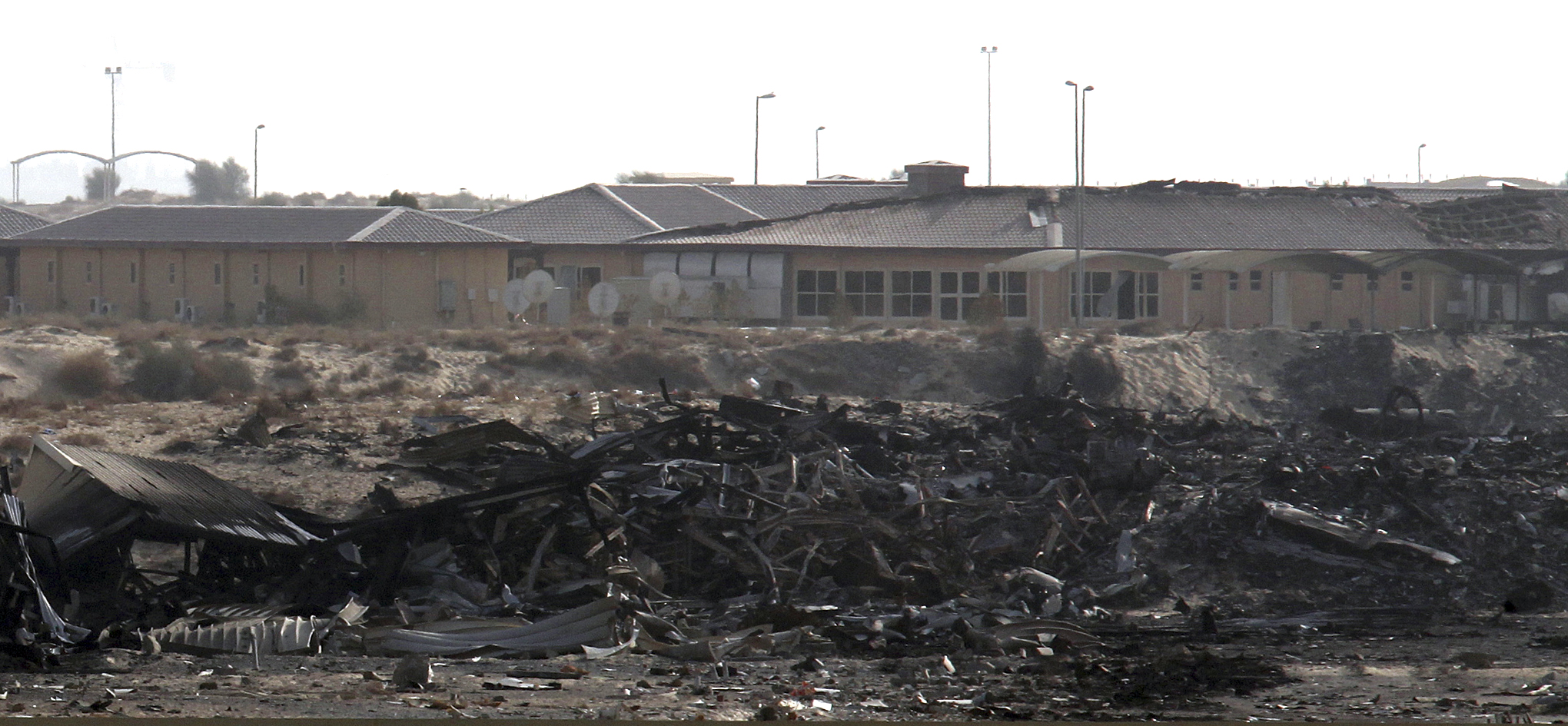
In the United States, the DOT inspects battery suppliers and manufacturers. Packages that violate the rules are rejected and violators can be fined. The U.S. Postal Service asserts similar authority over mail shipments.
Richards said the Chinese regulators he’s spoken with claim they don’t have jurisdiction over manufacturers and shippers.
Moreover, the logistics on the Chinese side are especially complicated.
Most of the batteries manufactured in China will depart for overseas via Hong Kong, but that comes after a string of complex logistics, which can include a ground transporter, freight forwarder, an export agent in Hong Kong, plus package handling and consolidators in the mix too.
At the same time, Kerchner said, “It would be inaccurate to say they have no control over it.”
“We have our members who are shipping out of Hong Kong on a daily basis who are in complete compliance,” he said.
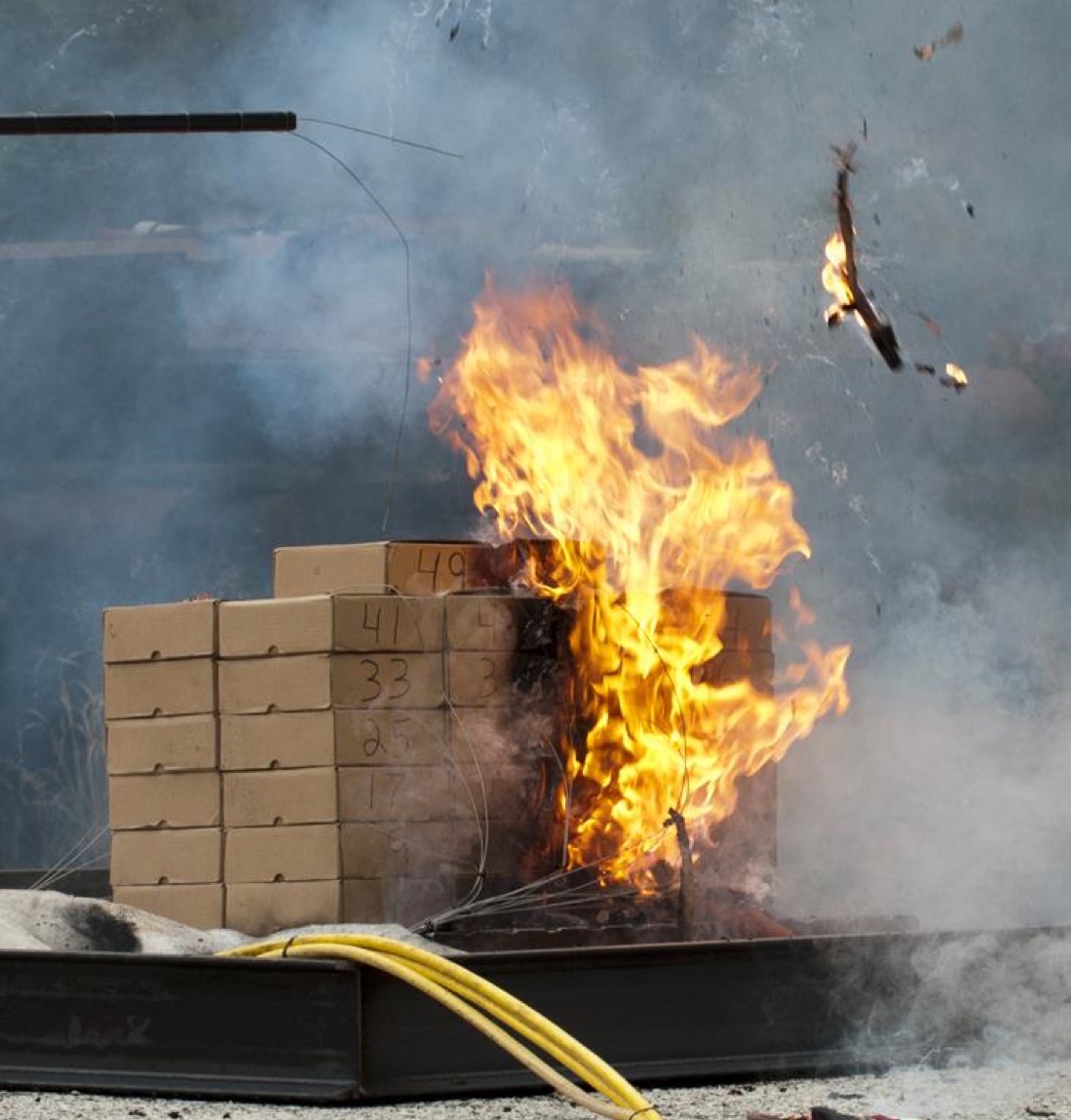
Richards wants the United States and international regulators to pressure China to police its own industry, but he has yet to see any traction on this idea.
“I’ve talked to pretty high-ranking officials about this, and they’re like, ‘There’s nothing we can do about it.'”
He thinks more pressure can be applied, for example in the form of criminal charges.
“If you have lithium batteries put in a brown box, and it catches fire and kills a cargo pilot, shouldn’t that be homicide? Shouldn’t they be put in jail?” said Richards.
James Woodrow, head of IATA’s Cargo Committee and chief of Cathay Pacific Cargo, said the same in a speech at the World Cargo Symposium in Shanghai in April, “Flagrant abuses of dangerous goods shipping regulations, which place aircraft safety at risk, must be criminalized, as are other actions, which place aircraft safety at risk.”
PRBA is also trying to apply pressure on this issue. It submitted a letter to the International Civil Aviation Organization (ICAO) in August urging the U.N. agency to take action.
“[C]ompliance and enforcement has been particularly problematic for products originating in the People’s Republic of China and shipped from Hong Kong,” reads the letter.
The letter states non-compliant shipments are “extremely troubling” to PRBA members, yet there’s little they can do about transgressors.
“ICAO, however, is in a position to act,” the letter states. It concludes by warning that without enforcement, the danger posed by lithium-ion batteries will remain.
“[W]ithout an aggressive enforcement effort, the chance of an incident greatly increases. This is an unacceptable situation—and one that can be avoided,” stated the letter.

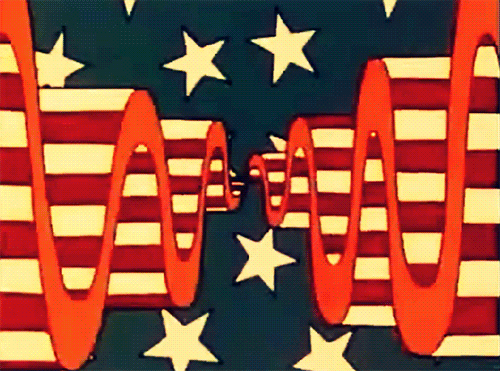

One of the penalties for refusing to participate in politics is that you end up being governed by your inferiors. -- Plato (429-347 BC)
THE PATRIOT
The Patriot is a non-partisan, non-profit organization with the mission to Educate, protect and defend individual freedoms and individual rights.
Knowledge Is Power - Information Is Liberating: The Patriot Welcome is a non-profit blog dedicated to bringing as much truth as possible to the readers.
Big Tech has greatly reduced the distribution of our stories in our readers' newsfeeds and is instead promoting mainstream media sources. When you share with your friends, however, you greatly help distribute our content. Please take a moment and consider sharing this article with your friends and family. Thank you
“Disappointingly, we are seeing some willful noncompliance in the area of lithium batteries—particularly here in China. For example, there is a supplier on Alibaba claiming they will relabel 300 Watt-hour batteries as 100 Watt-hour, and even ship them via the standard postal service,” said Tyler.
There have been numerous other examples too, including an undeclared battery shipment from Hong Kong aboard a UPS Boeing 747 that crashed near Dubai in 2010 after a severe inflight fire, killing the crew.
Holding China Accountable
Dealing with China’s noncompliance is a source of enormous frustration for the battery industry and shippers.“How do we prevent companies that do not follow the rules and ship their noncompliant batteries in plain brown boxes aboard aircraft from doing so and hold them accountable?” asked Richards adding, “The airlines can’t reject them if they don’t know what is in the box.”
For Richards, the safety problem can never be fully resolved unless China is held accountable.

The remains of the UPS 747-400 Boeing cargo plane that went up in flames due to exploded lithium batteries in Dubai on Sept. 5, 2010. (AP Photo/File)
Richards said the Chinese regulators he’s spoken with claim they don’t have jurisdiction over manufacturers and shippers.
Moreover, the logistics on the Chinese side are especially complicated.
Most of the batteries manufactured in China will depart for overseas via Hong Kong, but that comes after a string of complex logistics, which can include a ground transporter, freight forwarder, an export agent in Hong Kong, plus package handling and consolidators in the mix too.
From a logistics standpoint and an enforcement standpoint, it is a complex situation.
“From a logistics standpoint and an enforcement standpoint it is a complex situation,” said George Kerchner, executive director of the Rechargeable Battery Association, PRBA.
At the same time, Kerchner said, “It would be inaccurate to say they have no control over it.”
“We have our members who are shipping out of Hong Kong on a daily basis who are in complete compliance,” he said.

A test conducted by the Federal Aviation Administration to see if a single lithium-ion battery would start a chain reaction with other of lithium-ion batteries if it happened to explode. (DOT/FAA/TC-TN12/11)
“I’ve talked to pretty high-ranking officials about this, and they’re like, ‘There’s nothing we can do about it.'”
He thinks more pressure can be applied, for example in the form of criminal charges.
“If you have lithium batteries put in a brown box, and it catches fire and kills a cargo pilot, shouldn’t that be homicide? Shouldn’t they be put in jail?” said Richards.
James Woodrow, head of IATA’s Cargo Committee and chief of Cathay Pacific Cargo, said the same in a speech at the World Cargo Symposium in Shanghai in April, “Flagrant abuses of dangerous goods shipping regulations, which place aircraft safety at risk, must be criminalized, as are other actions, which place aircraft safety at risk.”
PRBA is also trying to apply pressure on this issue. It submitted a letter to the International Civil Aviation Organization (ICAO) in August urging the U.N. agency to take action.
“[C]ompliance and enforcement has been particularly problematic for products originating in the People’s Republic of China and shipped from Hong Kong,” reads the letter.
The letter states non-compliant shipments are “extremely troubling” to PRBA members, yet there’s little they can do about transgressors.
“ICAO, however, is in a position to act,” the letter states. It concludes by warning that without enforcement, the danger posed by lithium-ion batteries will remain.
“[W]ithout an aggressive enforcement effort, the chance of an incident greatly increases. This is an unacceptable situation—and one that can be avoided,” stated the letter.



One of the penalties for refusing to participate in politics is that you end up being governed by your inferiors. -- Plato (429-347 BC)
THE PATRIOT
"FIGHTING FOR FREEDOM AND LIBERTY"
and is protected speech pursuant to the "unalienable rights" of all men, and the First (and Second) Amendment to the Constitution of the United States of America, In God we trust
Stand Up To Government Corruption and Hypocrisy
Knowledge Is Power And Information is Liberating: The FRIENDS OF LIBERTY BLOG GROUPS are non-profit blogs dedicated to bringing as much truth as possible to the readers.
Knowledge Is Power And Information is Liberating: The FRIENDS OF LIBERTY BLOG GROUPS are non-profit blogs dedicated to bringing as much truth as possible to the readers.
NEVER FORGET THE SACRIFICES
BY OUR VETERANS
Note: We at The Patriot cannot make any warranties about the completeness, reliability, and accuracy of this information.
The Patriot is a non-partisan, non-profit organization with the mission to Educate, protect and defend individual freedoms and individual rights.
Support the Trump Presidency and help us fight Liberal Media Bias. Please LIKE and SHARE this story on Facebook or Twitter.
COMPLAINTS ABOUT OUR GOVERNMENT REGISTERED HERE WHERE THE BUCK STOPS!
GUEST POSTING: WOULD YOU LIKE TO BE PUBLISHED ... DO YOU HAVE SOMETHING ON YOUR MIND?
Knowledge Is Power - Information Is Liberating: The Patriot Welcome is a non-profit blog dedicated to bringing as much truth as possible to the readers.
Big Tech has greatly reduced the distribution of our stories in our readers' newsfeeds and is instead promoting mainstream media sources. When you share with your friends, however, you greatly help distribute our content. Please take a moment and consider sharing this article with your friends and family. Thank you
Please share… Like many other fact-oriented bloggers, we've been exiled from Facebook as well as other "mainstream" social sites.
We will continue to search for alternative sites, some of which have already been compromised, in order to deliver our message and urge all of those who want facts, not spin and/or censorship, to do so as well.
Keep on seeking the truth, rally your friends and family and expose as much corruption as you can… every little bit helps add pressure on the powers that are no more.
Keep on seeking the truth, rally your friends and family and expose as much corruption as you can… every little bit helps add pressure on the powers that are no more.
Those Who Don't Know The True Value Of Loyalty Can Never Appreciate The Cost Of Betrayal.


No comments:
Post a Comment